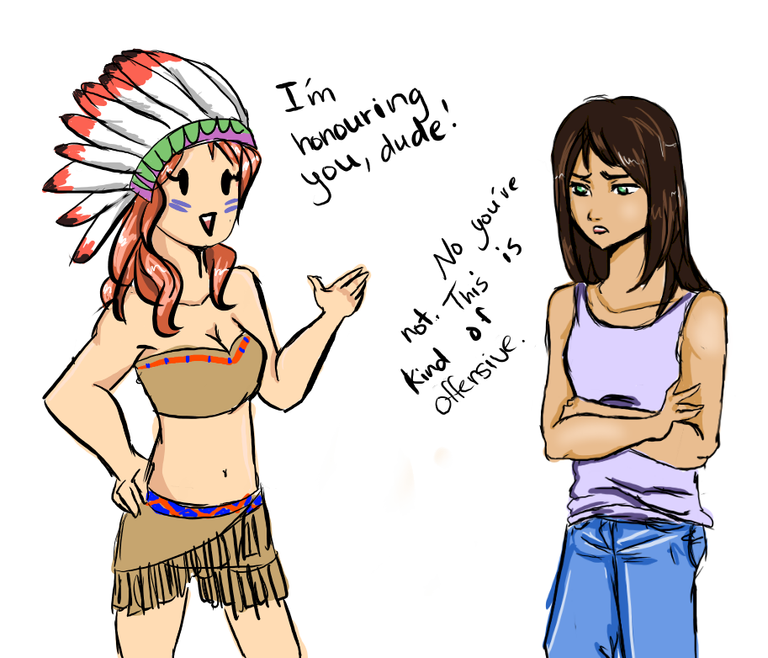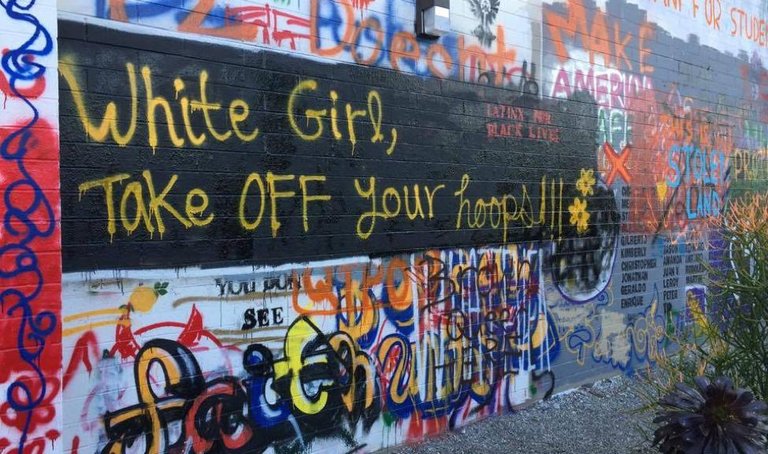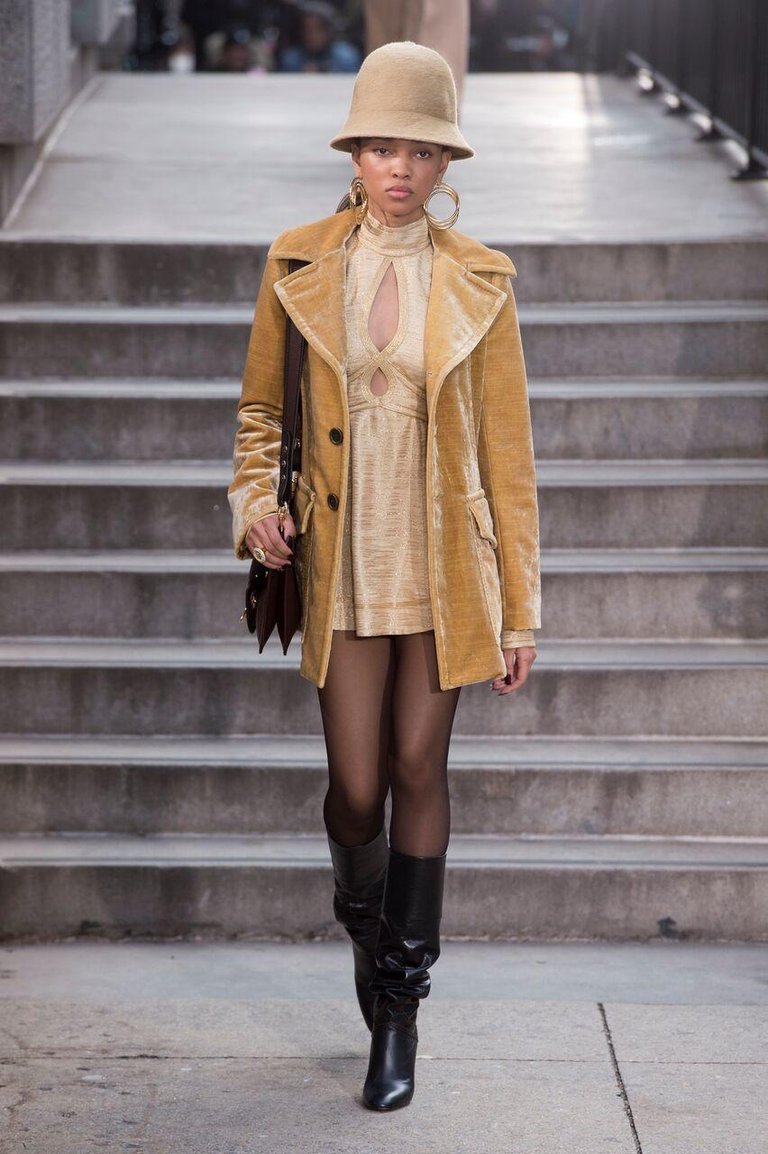So the point of these posts is never to create division or start a fight, but to open dialogue regarding issues of diversity and treating people with respect.
My first post on the subject: https://steemit.com/life/@drwillwho/steemit-an-old-white-man-s-classroom-for-gaining-wisdom-in-diversity-i-m-at-my-desk-teach-me simply offered the opinion that Steemit, with it's world wide reach, should be a fantastic classroom for getting varied opinions, hopefully directly from those who are most affected by diversity issues.
My own personal approach is from the perspective of greybearded white guy. I've only been in a minority position for short periods of time in Detroit, Liberia, and Senegal. I've never been treated, in any of these situations, with anything less than respect. Thus, I don't know that I've ever been the victim, knowingly, of any sort of racial injustice.
Another previous post: https://steemit.com/motivation/@drwillwho/how-we-wound-the-hurting-with-our-reality posed the idea that we really can't appreciate what another feels because we are not able to live experiences through someone else's perspective. Thus, I should not disrespect the feelings of another on a topic, such as racism, just because I don't understand it or feel the same way. Their feelings are unique and valid because they have them, and it is up to us to understand this difference, and to help others based on their feelings, not what we believe they should feel.
It's not what we say... it's what they hear that is important.
There's so much that could be discussed regarding diversity and relationships between ethnic/racial groups, but I'd like to approach it issue by issue so that we do get too far down other rabbit holes.
One issue that I'd love some perspective on is the idea of cultural appropriation.
At the root of this is the idea that there are behaviors, patterns of speech, physical looks, art, music, attire, etc... that "belong" to a culture and are key in it's identity. I imagine one example would be the idea that the ceremonial head dress or other feathered head gear are typically identified with Native Americans as are certain other items of personal adornment. To my knowledge, these types of head wear are not common to other peoples, although it may just be, that as an American, they Native Americans are the closest group of people to whom they are characteristic.
Now this may not be the best example in some ways, because I am not familiar with situations where non Native Americans are walking around with this style of feathered adornment as a fashion. However, there have definitely been times, such as when certain movies depicting Native American lifestyles (think Pocahontas, Dances with Wolves, The Last of the Mohichans) we would have children and adults choosing Native American costumes for Halloween.

So my instinct is that dressing up so overtly as someone from another culture is less done out of respect, but more out of utilizing the unique attire of another people to draw attention to one's self. So I would think this to be inappropriate.
Am I correct so far?

So I reflect on a situation that occurred a while back, where white women/girls were reprimanded at a university by other students for wearing hoop earrings. I admit, that in my ignorance, I was a bit floored. I have seen, throughout my life, women of all different ethnic backgrounds wear hoops, and had never even been savy enough to tune into their being representative of a certain culture. Again... white male. (An article written about this in the Huffington Post: https://www.huffingtonpost.com/entry/white-girls-take-off-your-hoops-how-this-latina_us_59837e73e4b0bd8232029637)
But as I tried to educate myself about this, I became more confused. It seems that:
Hoop earrings have a very long history dating all the way back to the ancient Sumerians from modern-day Iraq in 2600 B.C. Different variations of the hoop have been adopted by a range of cultures around the world, from the Hmong women of Vietnam to the Gadaba tribe of India, as Vogue points out. But, in America, the style has often been adopted by women of color in an effort to reclaim their culture and celebrate their history.
(https://i-d.vice.com/en_us/article/j5mqyy/who-owns-hoop-earrings)
So if this style of jewelry has origins in the middle east, Vietnam, and India... how did they become part of the cultural identity of women of color?
Hoop earrings became especially popular among African American women during the Black Power movement in the 1960s when many were embracing Afrocentric dress. From activists like Angela Davis to artists like Tina Turner, more women were adopting an African-inspired look that embraced natural hairstyles and hoop earrings.

By the 1990s, oversized hoop earrings were a fixture of Chola style, which was embraced by working-class Mexican American women in Southern California. The radical look was defined by slicked-down baby hairs, dark lip-liner, and door-knocker hoop earrings.
(https://i-d.vice.com/en_us/article/j5mqyy/who-owns-hoop-earrings)
So it seems that this fashion identity, at least in America, really started in the '60's for African Americans and solidified in the '90's for Mexican Americans.
So... I guess my delicately phrased question is... do brown people's own Hoop Jewelry?
I mean this as a true question. Not some tongue-in-cheek jibe at anyone. If a group adopts something in the 1960's-1990's and it becomes very popular within that culture, but it is not, nor has it been exclusive to this culture from it's origins... does it become something sacred to be avoided by others. Because they have identified with it, does it mean that other people who appreciate it are in the wrong.
Further, I guess I'm not sure where "Imitation is the sincerest form of flattery" comes in. (I found the full quote from Oscar Wilde to be even more interesting .

Because it affords the quality of greatness to the person being imitated, which can only be a good thing.
If we do accept that once a group begins identifying with something, whether clothing or slang or accent or behaviors... is the imitation of this appropriation or flattery? Obviously if someone is mocking another through imitation, that is horrible. But what if someone looks at the jewelry or fashion style or speech of another and finds it attractive?
There are many more examples, such as hair styles (corn rows, dread locks), musical styles (blues, hip hop) that could be cited as examples of where the idea of cultural appropriation has become an issue, and really should be discussed. I think many white people don't even realize they are giving offense by adopting these things into their own lives. And I'm not even sure if all people are offended or if this is something that varies greatly.
I would love to hear the perspectives of everyone on this issue. What cultures may be appropriated and which may not. How do we define things that are "cultural" and differentiate them from "trends" or "fads" that can sweep through different groups. I truly don't believe that the intent of most people is to denigrate or marginalize others through imitation, but if that is the effect... we need to know so we can stop, and be supportive.
Where are the lines drawn?
Yeah this is one of those issues that can be looked at from many perspectives and has a lot of shades of gray within it - from a broader anthropological perspective colored by the long view of history, the entire concept is kind of ludicrous. Every culture the world has ever known is one big amalgamation of many constituent parts that have been added through a process of accretion, bit by bit over the years. Many of these parts had their origins in other cultures. Human groups have been migrating around the world, inter-marrying and trading ideas, for hundreds of thousands of years.
From the insider perspective of an individual within a particular culture, the view is of course very different. Elements of a culture have a meaning and a context within that culture - I think "appropriation" may be best understood when there is a clear power-imbalance between groups and the oppressed/minority group sees elements of their culture being used by the majority group without the cultural context that gives them meaning - in this case it may even be seen as a form of oppression.
I don't have clear answers to any of the questions you are asking. I don't want to tell someone that what they are feeling is invalid when I don't have the cultural referents to understand where they are coming from. Simultaneously I think that looking at "a culture" as if it was some kind of monolithic and unchanging thing is a mistake. Cultures are alive and breathing and changing, constantly, and a big part of how cultures evolve is now and has always been by appropriating elements of other cultures that are seen as "exotic" and "cool".
Well thanks for the food for thought - great post! Cheers - Carl
Thank you so much for the fantastic reply. You have reaffirmed the complexity of the situation and many of the thoughts I have been using as references, including the important reality that we haven't the right to tell another how they should feel about something. That is why I continue to solicit the ideas from as many people who are willing to share so I can grow my perspective of how we should behave and what things should be definitely discouraged vs. situations that more likely represent an overreaction by an individual (which doesn't invalidate it's importance, especially when dealing with that individual or others like them). I agree that cultures, when open to diversity, will look to adopt new, palatable and enticing aspects of other cultures as a form of respect and emulation. I likewise accept that when these things, that are seen by one group as part of their identity become mainstream and thus diluted from their association with that group, this can seem like oppression. I find it interesting too that while one argument might be for greater acceptance of different cultures, that we simultaneously seem to have some efforts at re-segregation with regards to certain elements that are to remain the cultural property of the original group. This is all very complex, and I hope we can continue with thoughtful and enlightening dialogue as a steemit community. Who knows, maybe it will be here that some of these problems are solved?
Congratulations! This post has been upvoted from the communal account, @minnowsupport, by drwillwho from the Minnow Support Project. It's a witness project run by aggroed, ausbitbank, teamsteem, theprophet0, someguy123, neoxian, followbtcnews/crimsonclad, and netuoso. The goal is to help Steemit grow by supporting Minnows and creating a social network. Please find us in the Peace, Abundance, and Liberty Network (PALnet) Discord Channel. It's a completely public and open space to all members of the Steemit community who voluntarily choose to be there.
If you would like to delegate to the Minnow Support Project you can do so by clicking on the following links: 50SP, 100SP, 250SP, 500SP, 1000SP, 5000SP. Be sure to leave at least 50SP undelegated on your account.
Congratulations @drwillwho! You have completed some achievement on Steemit and have been rewarded with new badge(s) :
Click on any badge to view your own Board of Honor on SteemitBoard.
For more information about SteemitBoard, click here
If you no longer want to receive notifications, reply to this comment with the word
STOP